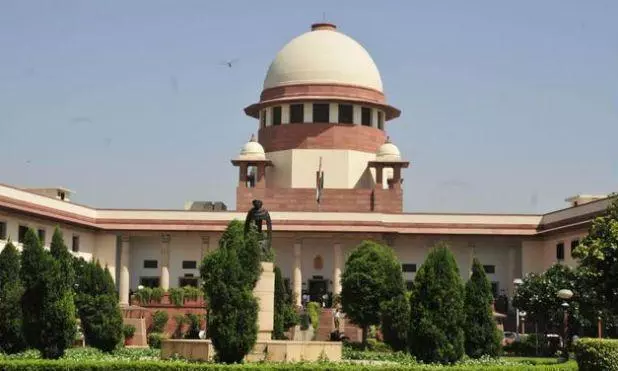SC issues split verdict on burial rights of deceased Christian from ST community

In a sensitive case involving religious rights and burial practices, a Division Bench of the Supreme Court on Monday delivered a split verdict on the rights of a deceased Christian man from the Scheduled Tribe (ST) community to be buried in a village burial ground. Despite the divided opinion, the Bench issued common directions to resolve the matter instead of referring it to a larger Bench.
The case arose after a dispute over whether the deceased, who had converted to Christianity, could be buried in the same burial ground where his Hindu ancestors were interred. The Chhattisgarh government insisted that the burial take place in a separate burial ground designated for Christians, which is located 20 kilometers away from the village. This recommendation was made to avoid potential law and order issues that could arise due to the religious conversion of the deceased.
On the other hand, the son of the deceased argued that his father, as a member of the Scheduled Tribe community, had the right to be buried in the same burial ground as his ancestors. He contended that his father's conversion to Christianity should not lead to discrimination in burial practices.
The matter came before a Bench of Justices BV Nagarathna and Satish Chandra Sharma, who were unable to reach a consensus on the ideal resolution. However, considering that the body had been in the morgue since January 7, the judges decided against referring the matter to a larger Bench. Instead, they issued directions under Article 142 of the Constitution to ensure the timely burial of the deceased.
In its order, the Bench directed that the deceased be buried in the burial ground located 20 kilometers away from his village, as proposed by the state government. The court emphasized that all necessary logistical support should be provided to the family to facilitate the burial. The ruling was aimed at addressing the immediate concerns and alleviating the suffering of the deceased’s family.
"We do not wish to refer the matter to a third judge Bench since the body has been in the morgue since January 7. We issue these directions to allay the sufferings of the family of the deceased," the Court said, disposing of the appeal.
This decision highlights the complex intersection of religion, community rights, and the challenges faced by those converting from one faith to another in traditional communities.

